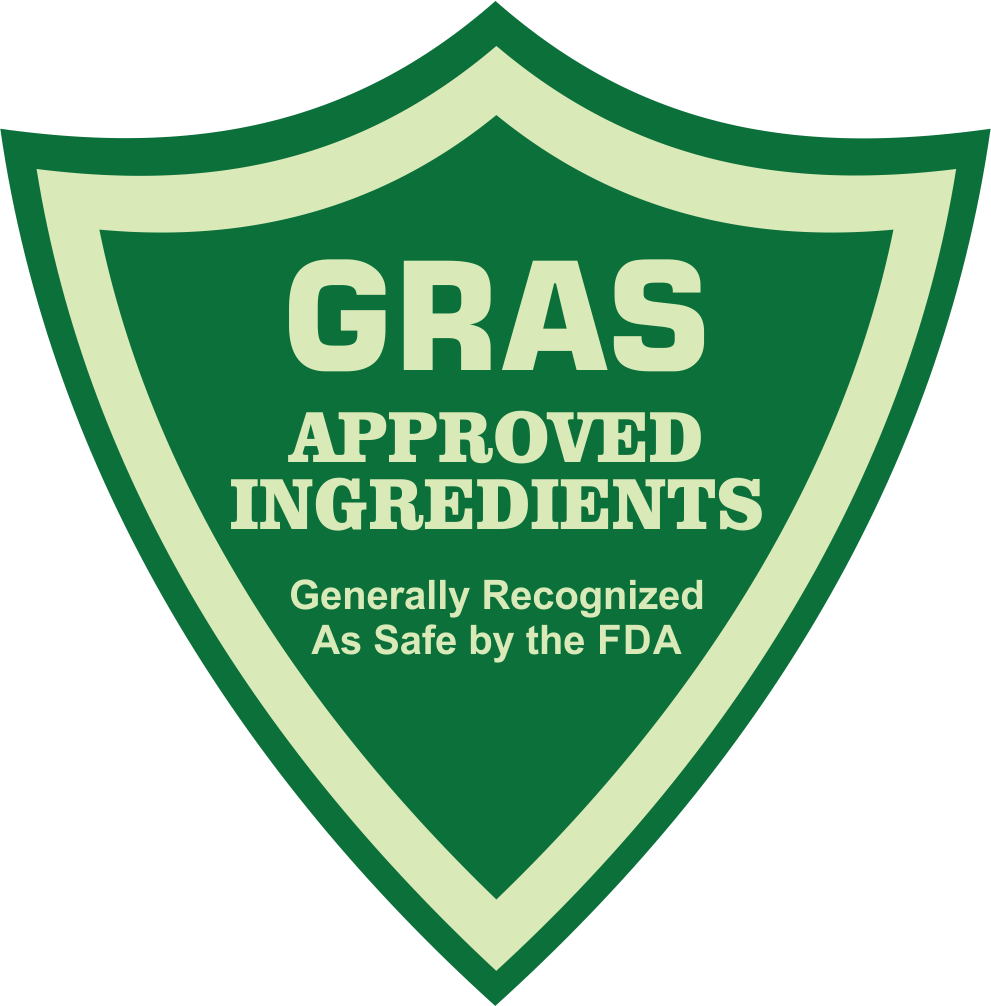Fragranced Products for Autistic Individuals
Hidden Health Effects
Recent research has brought attention to the potential health risks posed by fragranced consumer products, particularly for autistic individuals. This groundbreaking study delves into the impact of fragranced products on the well-being of autistic individuals, shedding light on the complex relationship between fragrance exposure and health outcomes.
With a focus on understanding the prevalence and severity of these effects, as well as their implications in society and the workplace, the study offers valuable insights into the overlooked issue of fragranced products for autistic individuals.
Methodology and Objectives
In this study, a rigorous methodology was employed to investigate the health effects of fragranced consumer products on autistic individuals.
The research team recruited a statistically representative sample population across three countries: the United States, Australia, and the United Kingdom. Utilizing large web-based panels, respondents were randomly selected to ensure diverse representation in terms of age, gender, and region.
The survey instrument incorporated questions from previous national studies, providing a standardized framework for data collection.
The primary objectives of the study were to assess the prevalence of adverse health effects among autistic individuals exposed to fragranced products, compare these effects with non-autistic individuals, and evaluate the impact on societal access and workplace environments.
By analyzing the self-reported data, the study aimed to identify common health problems, explore barriers to societal access, and understand the consequences on employment.
Additionally, the research sought to gauge the support for fragrance-free policies in both the workplace and healthcare facilities among autistic and non-autistic adults.
Through this comprehensive approach, the study aims to uncover vital insights into the health effects of fragranced consumer products on autistic individuals.
By delving into these findings, we can take significant strides towards creating a more inclusive and accommodating environment for individuals on the autism spectrum.

Fragranced Products for Autistic Individuals
Health Effects on Autistic Individuals
The Impact on Autistic Individuals Fragranced products, while pleasing to many, have a hidden dark side for autistic individuals. According to the study, a staggering percentage of
autistic adults, approximately 83.7%, reported experiencing adverse health effects from exposure to fragranced consumer products.
This prevalence highlights the need to explore the unique vulnerabilities of autistic individuals in relation to fragrance sensitivity.
Comparing the Impact: Autistic vs. Non-Autistic Individuals
Surprisingly, the study reveals that autistic individuals are more likely to be affected by fragranced products compared to their non-autistic counterparts.
When contrasting the prevalence of adverse health effects, it becomes evident that fragrance sensitivity takes a heavier toll on autistic adults. The prevalence odds ratio (POR) of 12.05 further emphasizes the significant disparity between the two groups.
Types of Health Problems
Among autistic individuals, a multitude of health problems arise due to exposure to fragranced products. The study identifies several common types of health problems experienced by this population.
Respiratory problems, such as difficulty breathing or coughing, were reported by (44.7%)
Migraine headaches (42.9%)
Mucosal symptoms (42.1%)
Skin problems (39.7%)
Neurological problems (34.3%)
Asthma attacks (35.9%)
Cardiovascular issues (34.3%)
These manifested as significant health concerns for autistic individuals exposed to fragranced products.
The prevalence of adverse health effects among autistic individuals underscores the urgent need to address the impact of fragranced consumer products on this vulnerable population. By understanding the specific health problems faced by autistic individuals, we can pave the way for targeted interventions and support systems to alleviate their struggles.
Fragranced Products for Autistic Individuals
Navigating Societal Access and Workplace Challenges
Fragranced products pose significant barriers for autistic individuals when accessing public places. The study reveals that a substantial proportion of
autistic adults, approximately 62.1%, face difficulties or feel reluctant to use restrooms in public places that contain air fresheners, deodorizers, or scented products.
This invisible hurdle further isolates autistic individuals from participating fully in society.
Autistic individuals encounter multiple limitations when exposed to fragranced products in public places. Among them, approximately
59.8% experience difficulties or reluctance to wash their hands with fragranced soap in public restrooms.
58.7% enter businesses but quickly seek to leave due to the presence of air fresheners or fragranced products.
A significant proportion of autistic individuals, 66.7%, have been prevented from going to certain places due to the risk of exposure to fragranced products that would trigger adverse health effects.
Workplace Woes: Lost Workdays and Job Loss
Fragranced product exposure in the workplace takes a toll on autistic adults, with 59.4% reporting lost workdays or job loss within the past year due to resulting illness.
This alarming statistic underscores the need for employers to address the impact of fragranced products to ensure a safe and inclusive work environment for all employees, regardless of neurodiversity.
A Breath of Fresh Air: Support for Fragrance-Free Policies
Both autistic and non-autistic adults show significant support for fragrance-free policies in various settings.
Among autistic adults, an overwhelming 65.5% express their support for a fragrance-free policy in the workplace, while 77.2% prefer fragrance-free healthcare facilities and professionals.
Similarly, among non-autistic adults, 46.1% support a fragrance-free workplace, and 45.8% prefer fragrance-free healthcare settings. These findings highlight the growing recognition of the importance of accommodating fragrance sensitivities to create inclusive spaces.
The impact of fragranced products extends beyond health effects, affecting autistic individuals’ ability to access public places and thrive in the workplace. Recognizing these challenges and implementing fragrance-free policies can help dismantle barriers and foster an inclusive society that respects the needs of all individuals, regardless of their neurodiversity.

Fragranced Products for Autistic Individuals
The Study: Strengths and Limitations
The study boasts several noteworthy strengths that contribute to the reliability and robustness of its findings. These strengths include:
Representative Sample Populations:
The study ensured that the sample populations in each country accurately reflected the age, gender, and regional distribution of the general population. This representative sampling enhances the generalizability of the results.
Random Recruitment:
The respondents were randomly recruited from large web-based panels, sourced from multiple channels, to ensure a diverse and unbiased sample. This method minimizes selection bias and strengthens the validity of the study.
Utilization of Established Questionnaires:
The survey employed questions derived from previously conducted and published national studies in the US, Australia, and the UK. By leveraging validated questionnaires, the study aligns with existing research and facilitates meaningful comparisons.
Study’s Boundaries
While the study provides valuable insights, it is essential to acknowledge its limitations, which include:
Exclusion of Children and the Elderly:
The study focused exclusively on adults between the ages of 18 and 65. Consequently, the findings may not be representative of the experiences of children and older individuals, warranting further research to address these age groups’ unique perspectives.
Reliance on Self-Reported Data:
The survey relied on self-reported data, which may be subject to recall bias or individual interpretation. Nonetheless, self-reporting remains a widely accepted and standard method for survey research, ensuring insights into individuals’ firsthand experiences.
Cross-Sectional Design:
The survey followed a cross-sectional design, capturing responses at a specific point in time. This design limits the ability to track changes in responses over time without additional surveys. Longitudinal studies would provide a more comprehensive understanding of the effects of fragranced products.
Recognizing the strengths and limitations of the study aids in interpreting the findings and paves the way for future research to address the identified gaps. By building upon these strengths and addressing the limitations, researchers can continue to deepen our understanding of the impact of fragranced products on health, enabling the development of more targeted interventions and policies.

Fragranced Products for Autistic Individuals
The Findings
The study’s findings shed light on the profound and disproportionate impact of fragranced consumer products on autistic individuals. By revealing that a staggering 83.7% of autistic adults report adverse health effects from these products, the study highlights the urgent need to address this issue.
Understanding the specific vulnerabilities of autistic individuals can pave the way for tailored interventions and support systems that promote their well-being and inclusion.
The Importance of Reducing Exposure
The study’s implications extend beyond the autistic population, emphasizing the importance of reducing exposure to fragranced consumer products for everyone’s well-being. The prevalence of adverse health effects reported by both autistic and non-autistic individuals signifies the potential harm these products can cause. Taking steps to minimize exposure, such as choosing fragrance-free alternatives, can create healthier environments and enhance overall quality of life for individuals across the board.
The Call for Further Research
While the study provides crucial insights into the adverse effects of fragranced products, there is a need for further research to delve deeper into the underlying causes. Understanding why these products induce such a range of adverse effects is vital for developing targeted interventions and policies. Exploring potential mechanisms, such as the specific chemicals or sensory sensitivities involved, can unlock a deeper understanding of the issue and inform strategies for prevention and support.
By recognizing the significance of the study’s findings, promoting reduced exposure to fragranced consumer products, and advocating for further research, we can work towards creating healthier and more inclusive environments. Collaborative efforts from researchers, policymakers, and the public can pave the way for a fragrance-conscious society that prioritizes the well-being and needs of all individuals.
Fragranced Products for Autistic Individuals
The Truth:
The study on the health effects of fragranced consumer products on autistic individuals and the general population has yielded critical insights. Key findings include the high prevalence of adverse health effects among autistic individuals, the significant impact on societal access and workplace environments, gender differences in reporting adverse effects, and the support for fragrance-free policies in both workplace and healthcare settings.
Time for Action: Addressing Health, Societal, and Economic Impacts
The study’s findings highlight the urgent need for action to mitigate the health, societal, and economic impacts of fragranced products on autistic individuals and the broader population. It is crucial to create environments that promote inclusivity, well-being, and equal access for all individuals, including those with sensory sensitivities. This requires collective efforts from various stakeholders, including policymakers, businesses, and individuals, to prioritize fragrance-free options and adopt practices that reduce exposure to harmful chemicals.
The Fragrance-Free Solutions: Introducing EarthSential Fragrance Free Odor Eliminator
As part of the call to action, EarthSential Fragrance Free Odor Eliminator offers a solution to abolish unpleasant smells from bathrooms and other areas that may cause discomfort. By opting for fragrance-free alternatives like EarthSential, individuals can contribute to creating healthier environments that are inclusive and accommodating for everyone, especially those with fragrance sensitivities. By choosing products that respect sensory needs, we can make a positive impact on individuals’ well-being and overall quality of life.
The study underscores the need for immediate action to address the adverse effects of fragranced consumer products on autistic individuals and the general population. By taking proactive steps to reduce exposure, support fragrance-free policies, and embrace solutions like EarthSential Fragrance Free Odor Eliminator, we can pave the way for a more inclusive, healthier, and fragrance-conscious society. Let us join hands in advocating for change and creating environments that prioritize the well-being and needs of all individuals.
Fragranced Products for Autistic Individuals
BAT’Z Odor Neutralizer: The Power of Odor Elimination
Say goodbye to stubborn odors with BAT’Z Odor Neutralizer, the ultimate solution for eliminating unpleasant smells. BAT’Z is specially formulated to combat odors at their source, providing you with a fresh and inviting environment. Whether it’s pet odors, mustiness, or other unwelcome smells, BAT’Z is your trusted companion in the battle against unwanted odors.
BAT’Z harnesses the power of its unique formulation to tackle odors effectively. With its advanced technology, BAT’Z has the ability to bind, trap, and absorb odor molecules, leaving you with a truly odor-free space. Its innovative approach ensures that odors are not merely masked but permanently eliminated, giving you long-lasting freshness that you can rely on.
One of the standout features of BAT’Z is its all-natural and fragrance-free formulation. Made with carefully selected ingredients, BAT’Z provides you with a safe and reliable solution for odor elimination. You can enjoy the benefits of BAT’Z without worrying about artificial fragrances or harmful chemicals. It’s the perfect choice for those seeking a natural and eco-friendly approach to odor control.

Purchase Here…
BAT’Z Odor Eliminator Spray by EarthSential
$12.99
The all-natural, fragrance-free solution to eliminate even the toughest of odors. Made from plant-based ingredients, BAT’Z is perfect for use in any room of the house or for any occasion.

The SAFEST All Natural Ingredients
EarthSential products are made with safety as our first ingredient! Our ingredients are all natural food grade and all found of the GRAS List, approved as SAFE ingredients by the FDA. Rest assured that our products are the SAFEST in the world, we made them that way.
Other products you might like…


Get the EarthSential Newsletter
Good deals, great advice & essentially necessary.
ARTICLES…
![]()
From Messy to Managed:

Housekeeping Hacks for ADHD Warriors
by Bonnie Pellerin Ι July 18, 2023 Ι 5 Min Read
Do you have chemical sensitization

or a Chemical Allergy?
by Bonnie Pellerin Ι June 7, 2023 Ι 5 Min Read
MORE ARTICLES…
![]()


